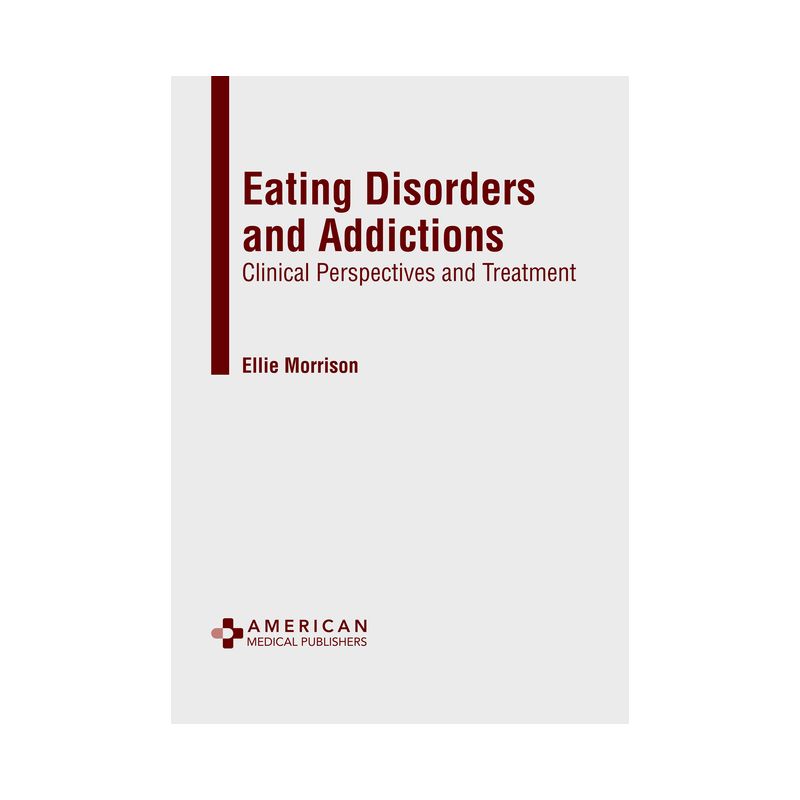Sponsored
Eating Disorders and Addictions: Clinical Perspectives and Treatment - by Ellie Morrison (Hardcover)
Create or manage registry
Sponsored
About this item
Highlights
- Eating disorders are a range of psychological conditions characterized by severe and persistent abnormal eating behaviors.
- Author(s): Ellie Morrison
- 239 Pages
- Psychology, Psychopathology
Description
About the Book
Eating disorders are a range of psychological conditions characterized by severe and persistent abnormal eating behaviors. Addiction to food is a compulsive or uncontrollable urge to eat food that does not relate to the feelings of hunger. These conditions are associated with distressing thoughts and emotions that may affect physical, psychological and social function. Some common symptoms of eating disorders include food binges, restriction of food, and purging behaviors like vomiting or over exercising. Heritability and genes play a significant role in the development of eating disorders, but people having no family history can also develop these disorders. There are several types of eating disorders including anorexia nervosa, bulimia nervosa, binge eating disorder, etc. A variety of physical and psychological evaluations, as well as lab tests are used to diagnose eating disorders. The treatment of an eating disorder is based on the type and severity the condition. Cognitive behavioral therapy (CBT), nutrition counseling and medical nutrition therapy are some methods of treating eating disorders. This book unravels the recent studies on eating disorders and addictions. It will provide comprehensive knowledge to the readers.Book Synopsis
Eating disorders are a range of psychological conditions characterized by severe and persistent abnormal eating behaviors. Addiction to food is a compulsive or uncontrollable urge to eat food that does not relate to the feelings of hunger. These conditions are associated with distressing thoughts and emotions that may affect physical, psychological and social function. Some common symptoms of eating disorders include food binges, restriction of food, and purging behaviors like vomiting or over exercising. Heritability and genes play a significant role in the development of eating disorders, but people having no family history can also develop these disorders. There are several types of eating disorders including anorexia nervosa, bulimia nervosa, binge eating disorder, etc. A variety of physical and psychological evaluations, as well as lab tests are used to diagnose eating disorders. The treatment of an eating disorder is based on the type and severity the condition. Cognitive behavioral therapy (CBT), nutrition counseling and medical nutrition therapy are some methods of treating eating disorders. This book unravels the recent studies on eating disorders and addictions. It will provide comprehensive knowledge to the readers.Additional product information and recommendations
Sponsored
Similar items
Loading, please wait...
Your views
Loading, please wait...
More to consider
Loading, please wait...
Featured products
Loading, please wait...
